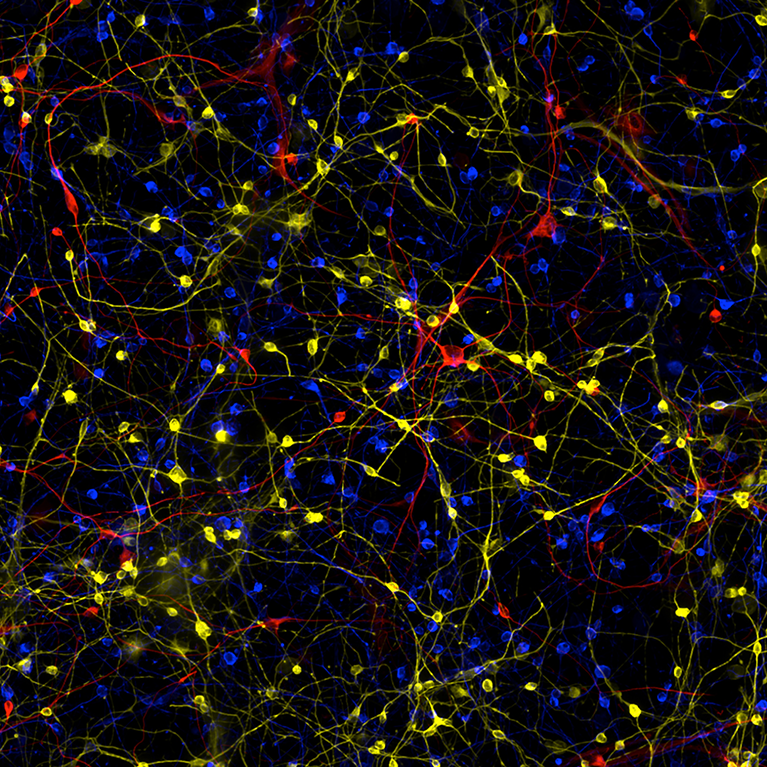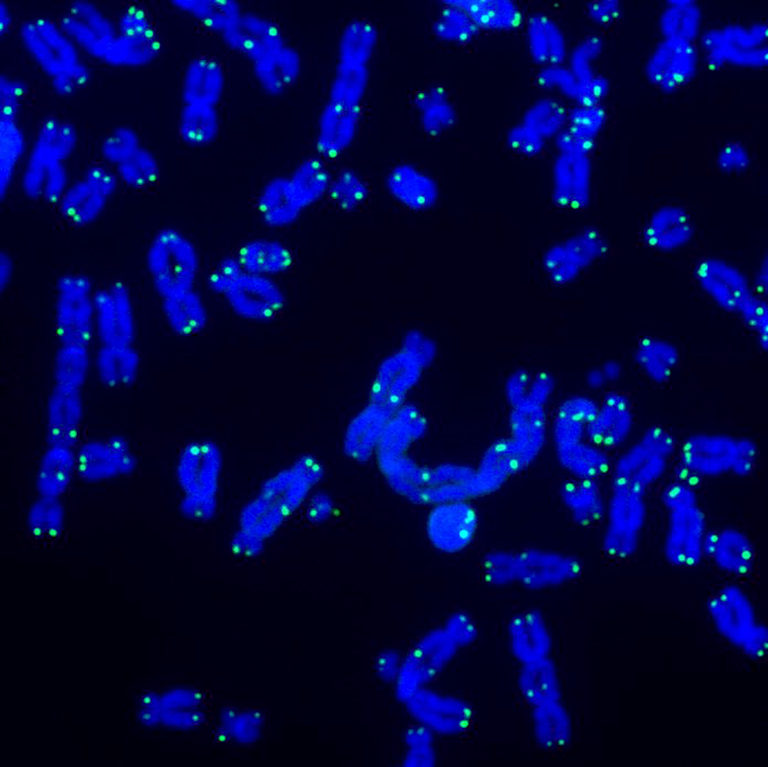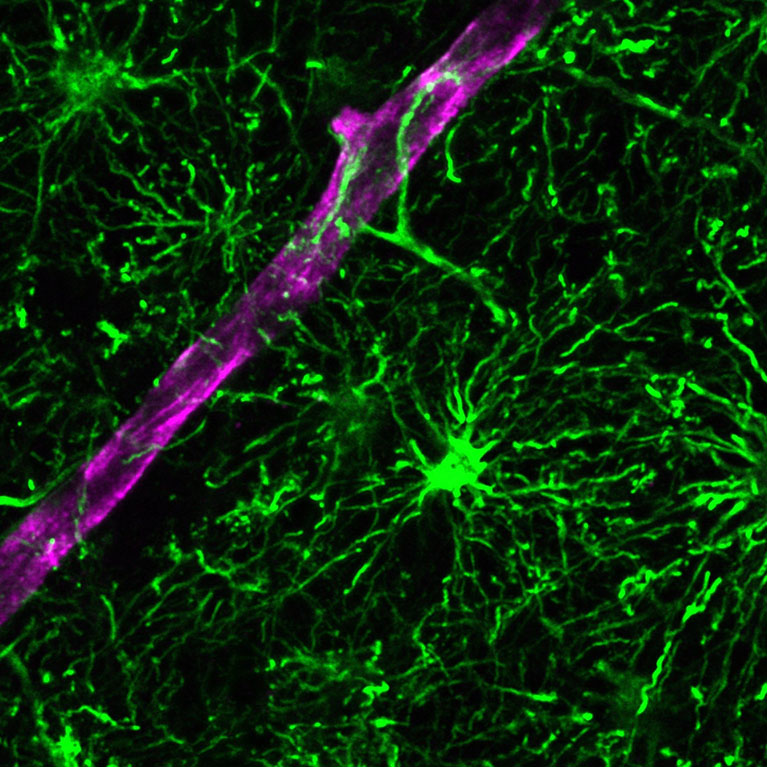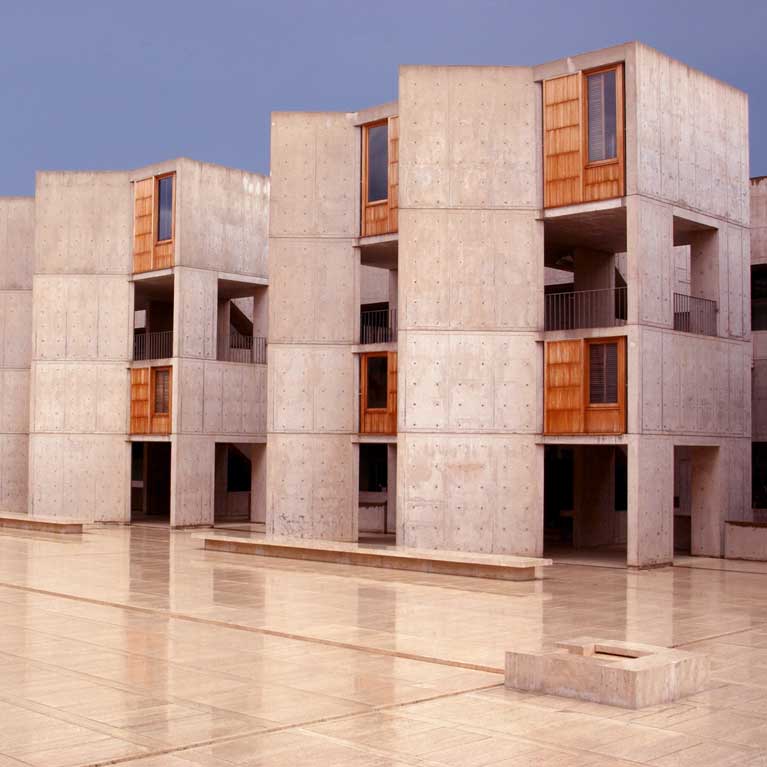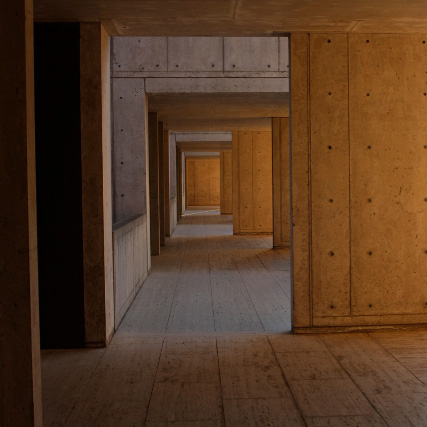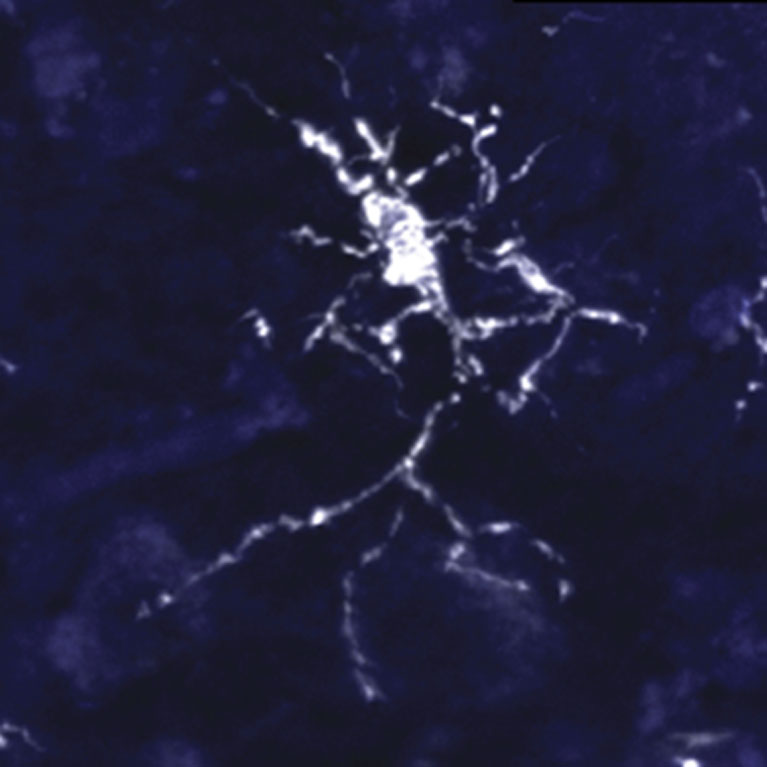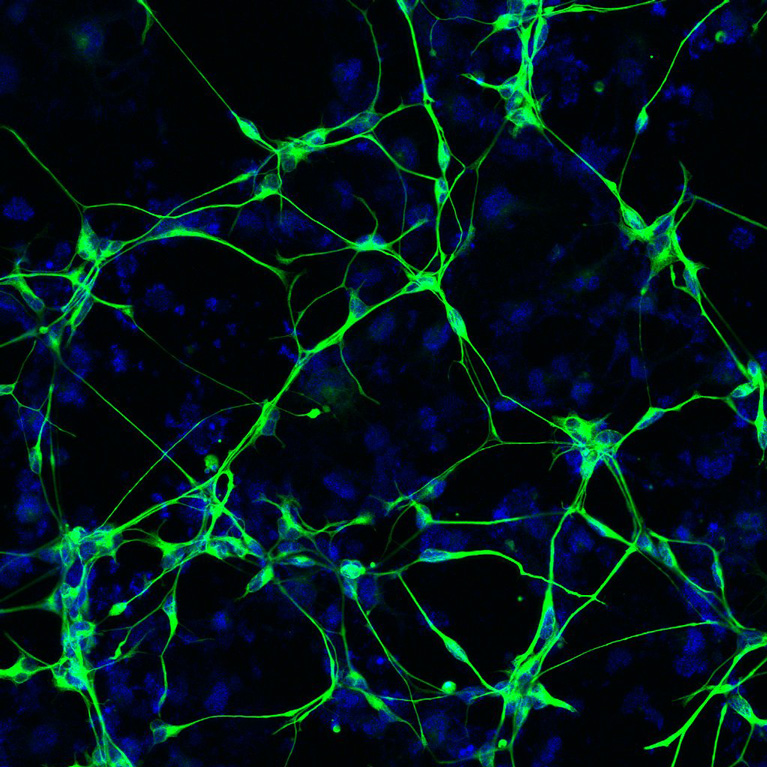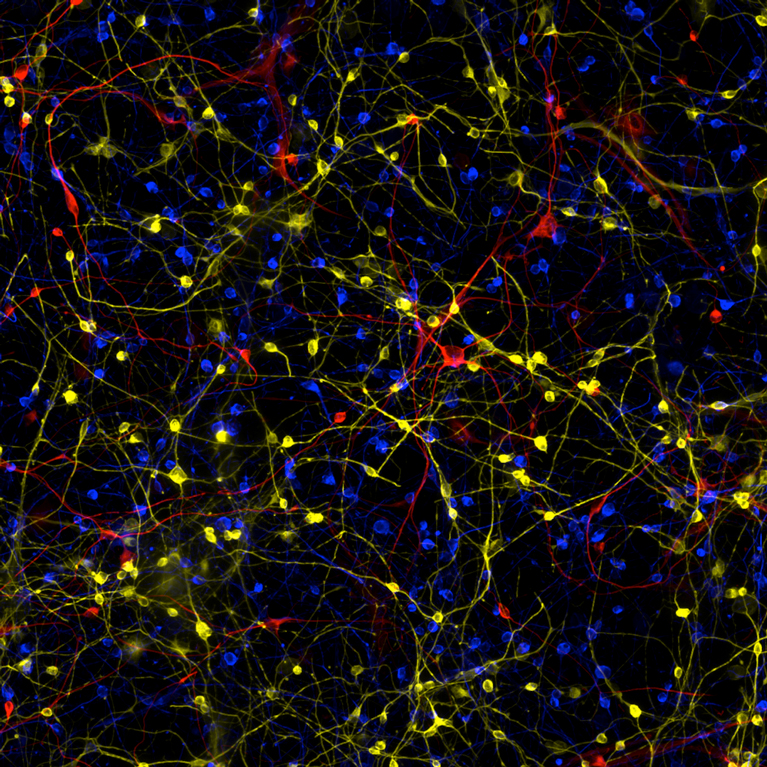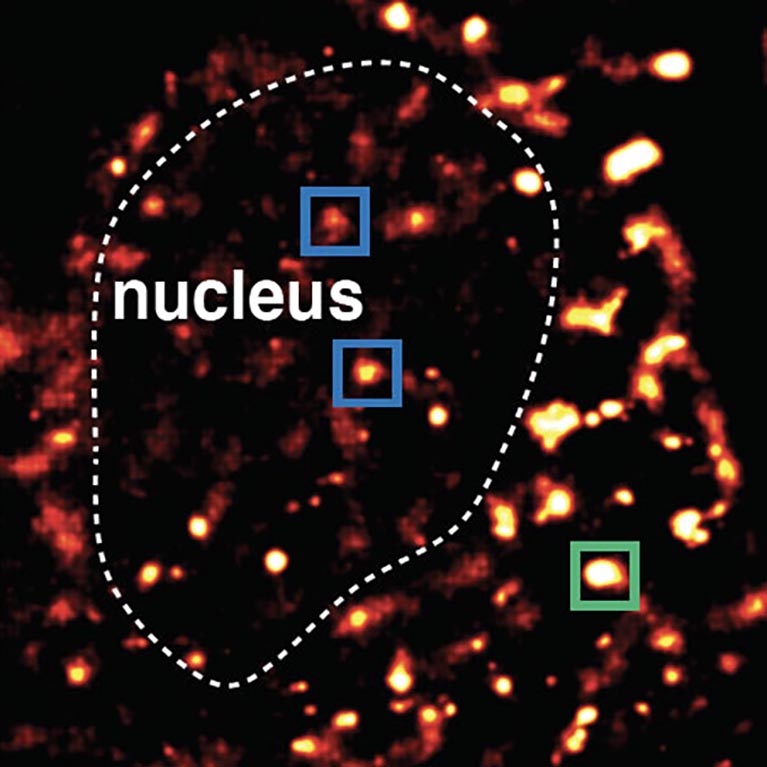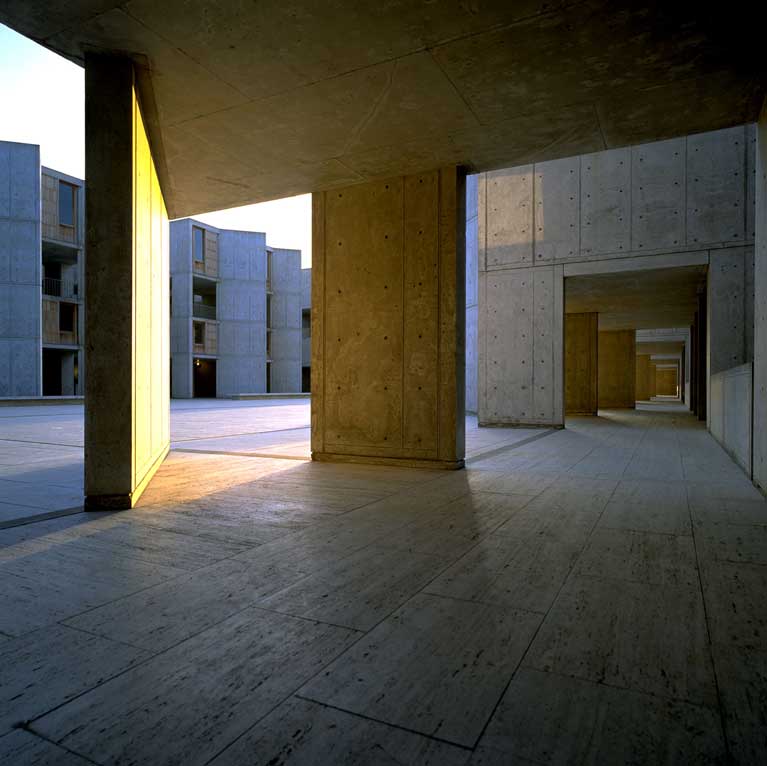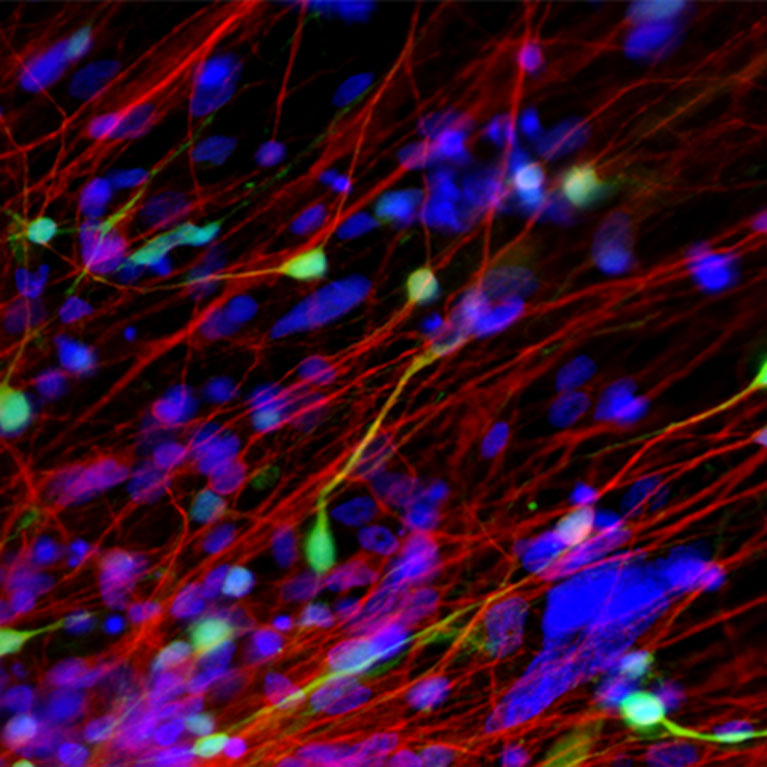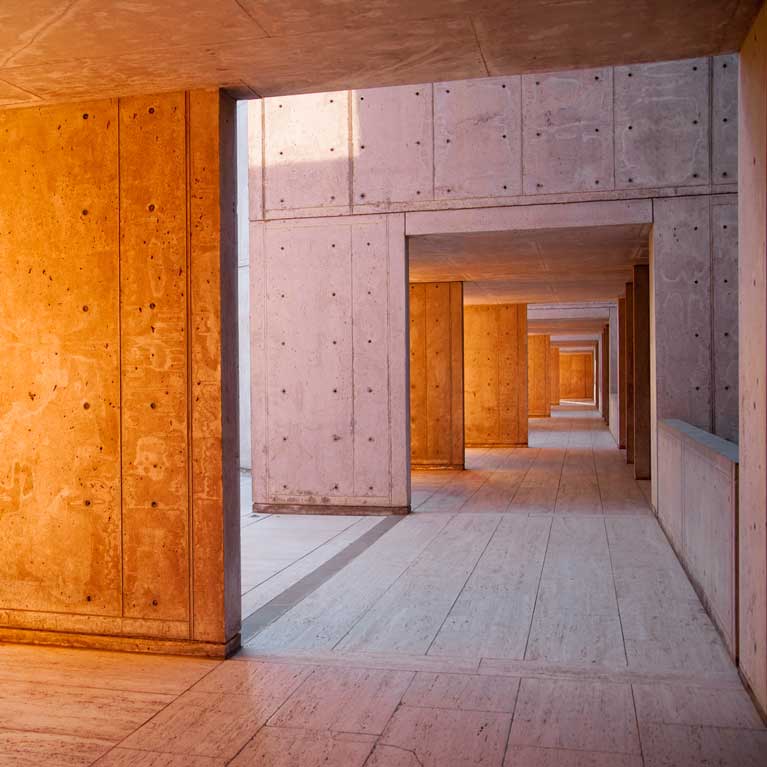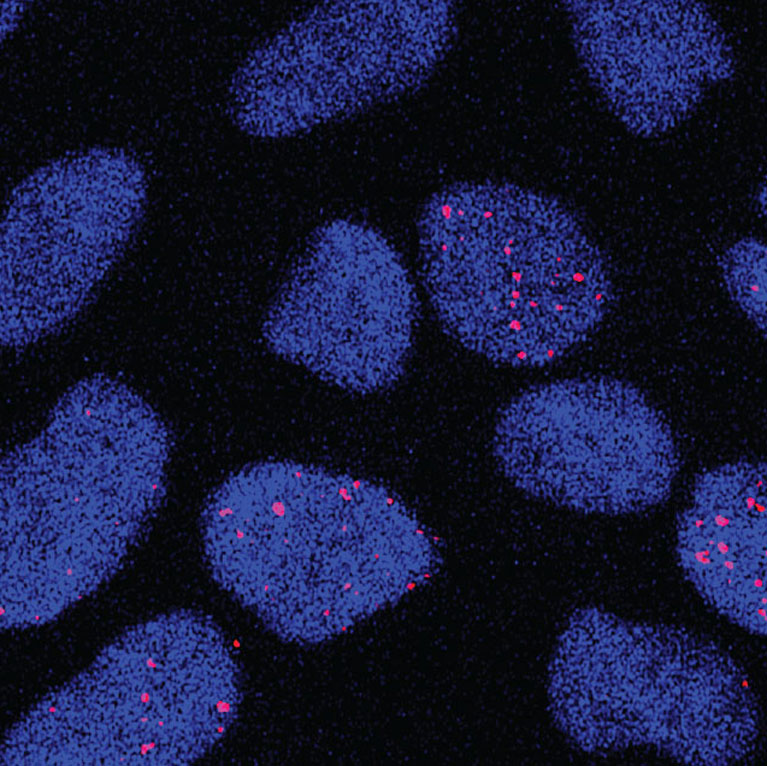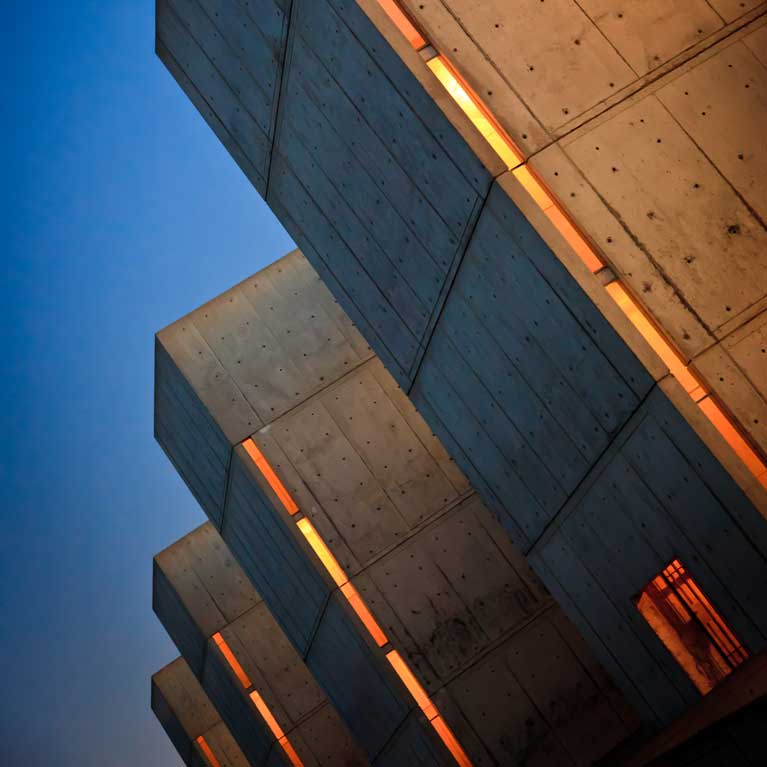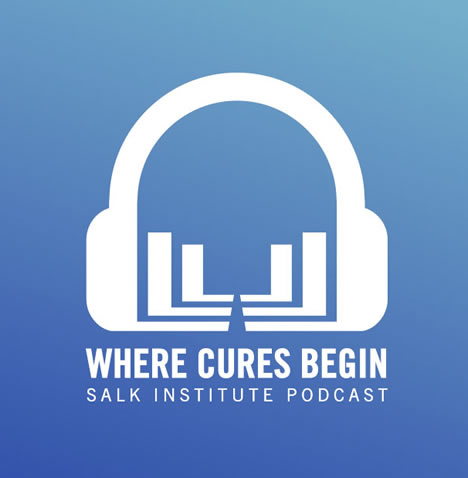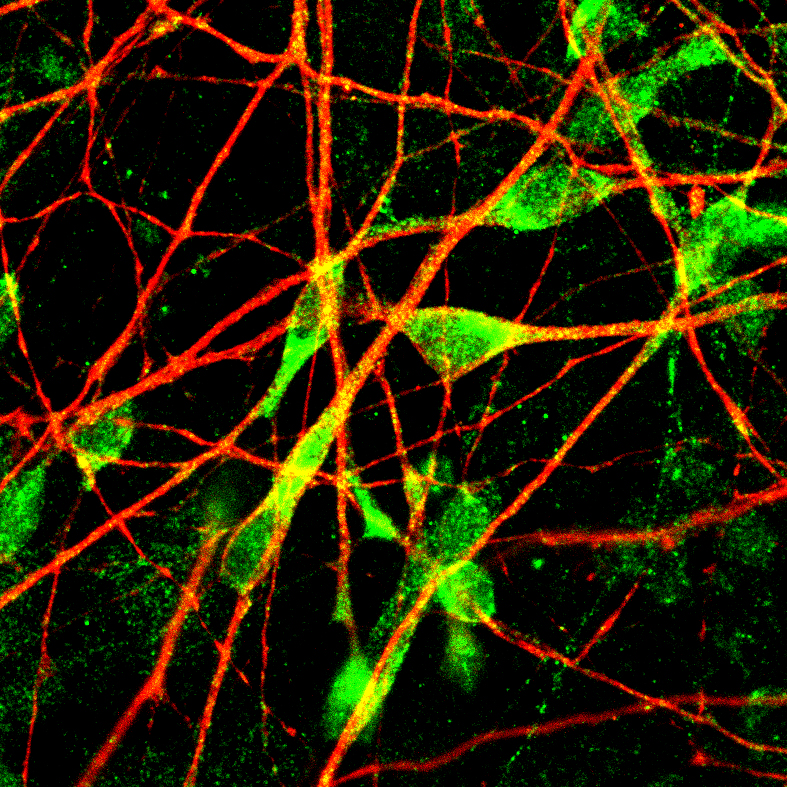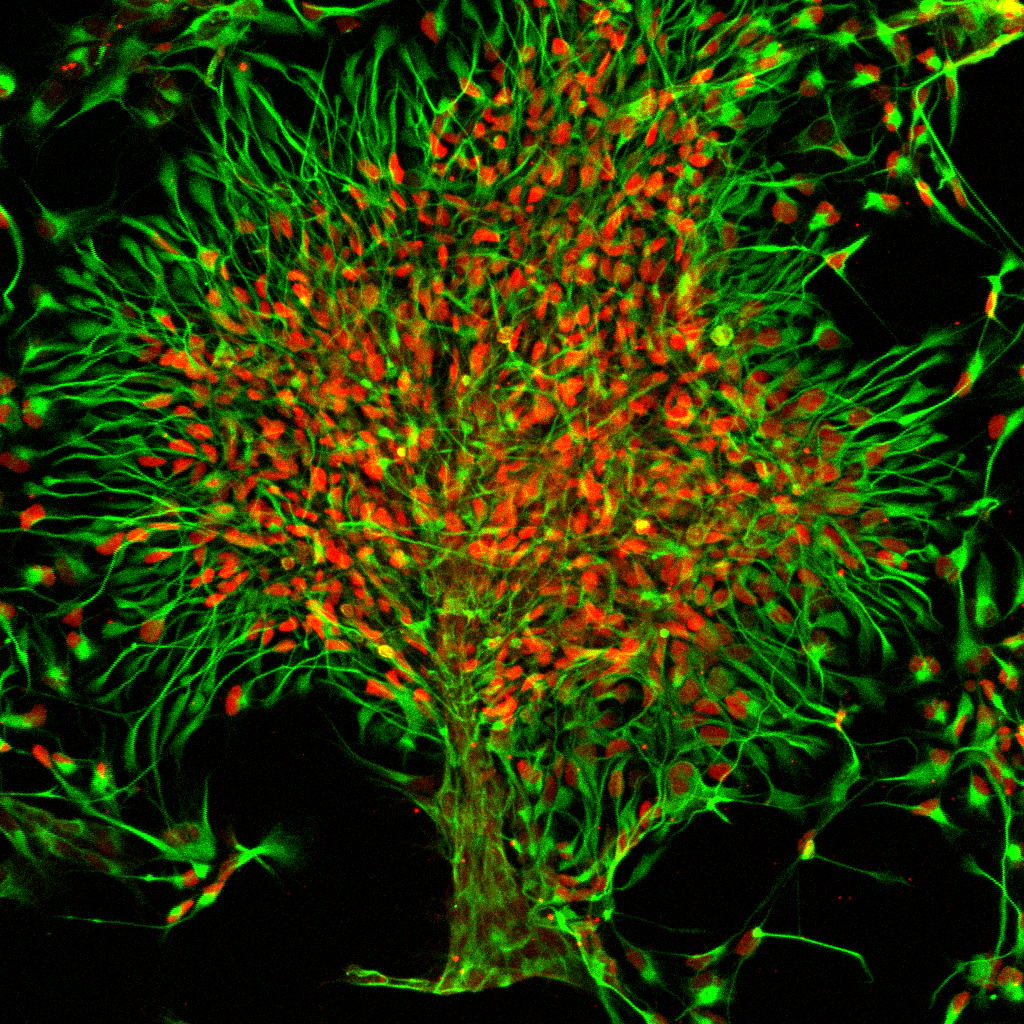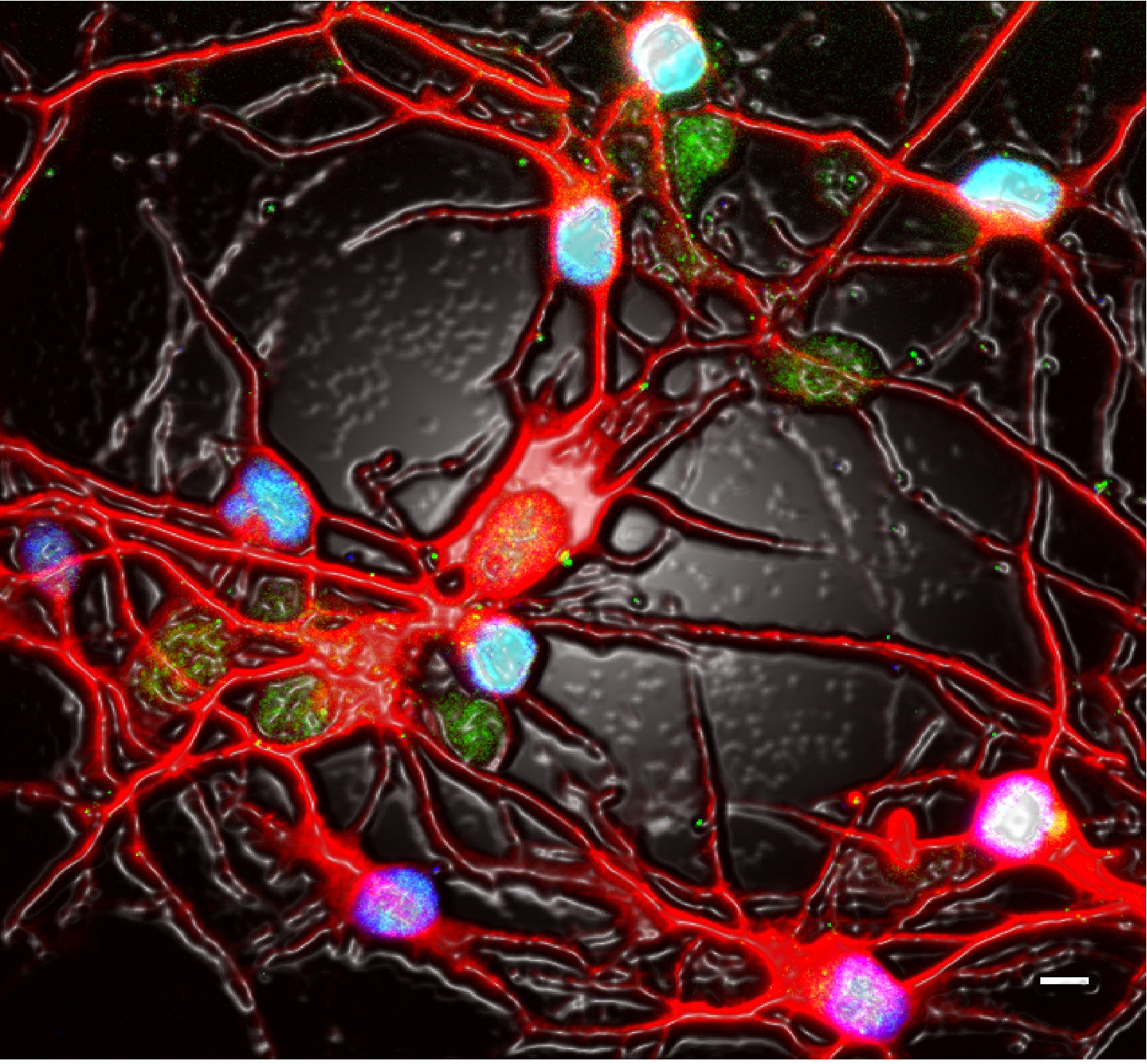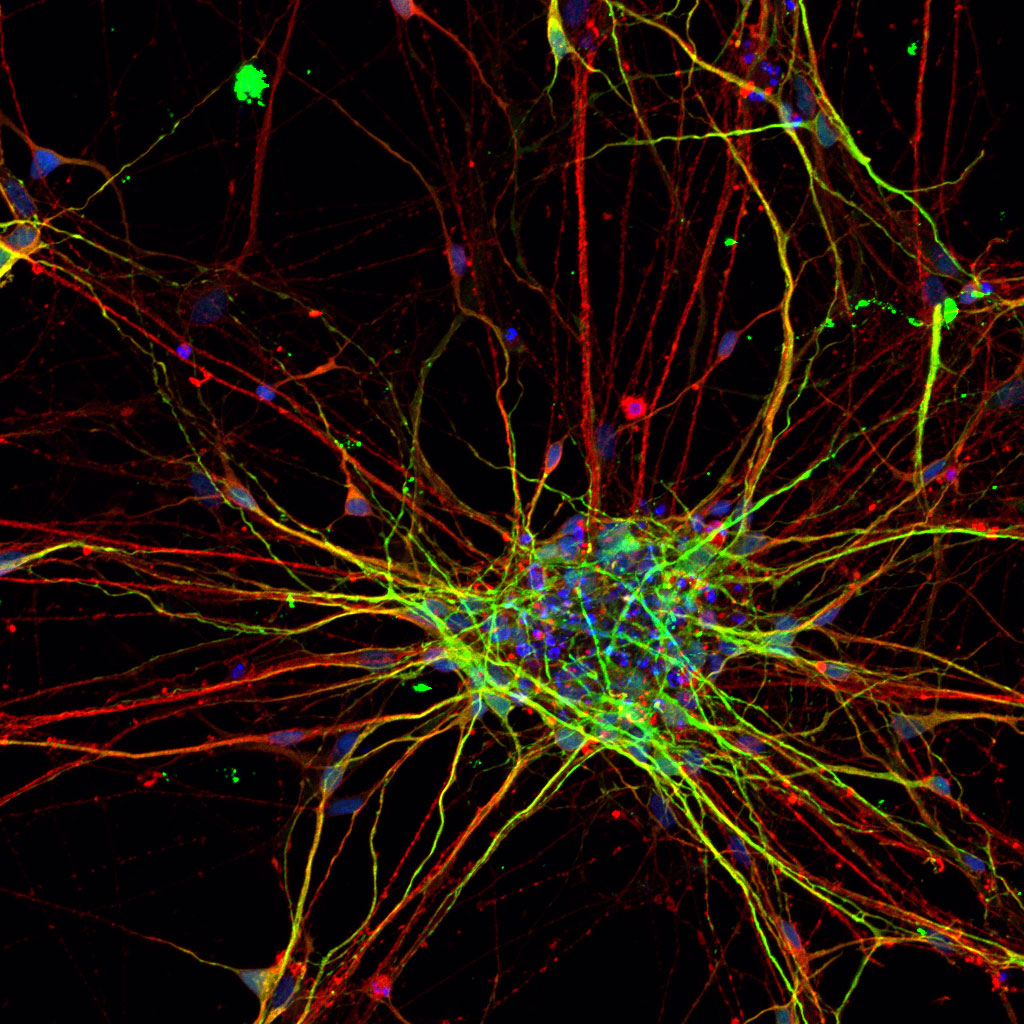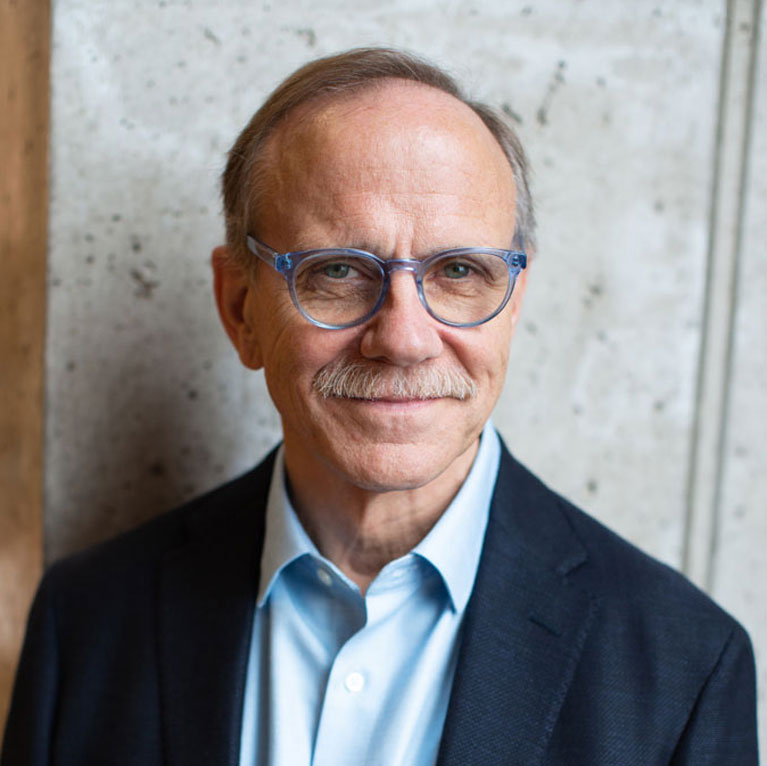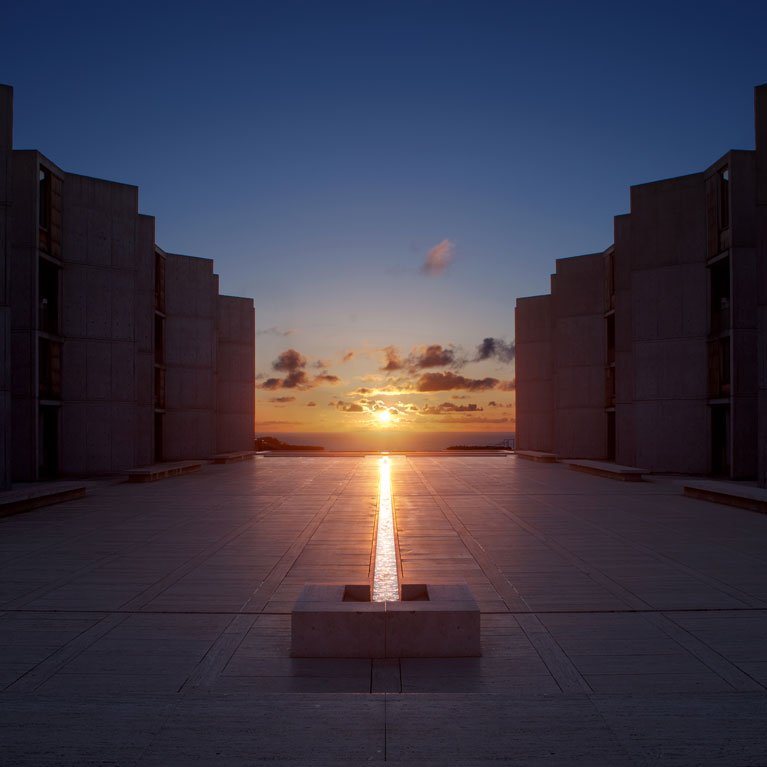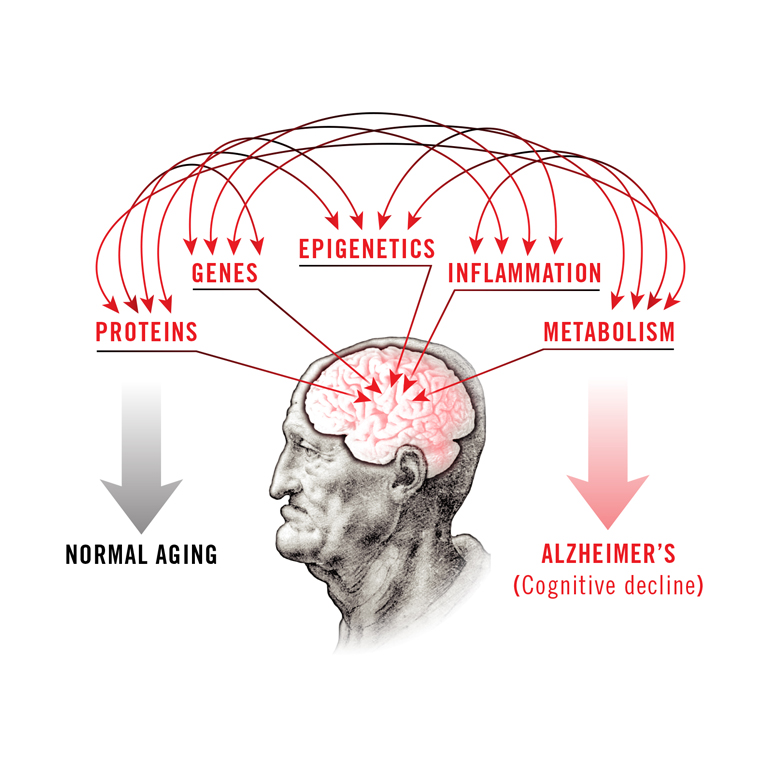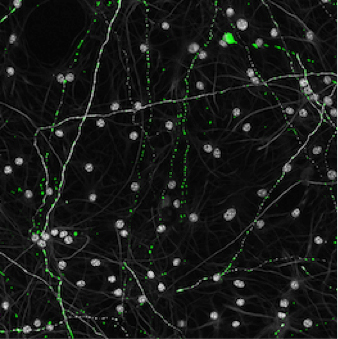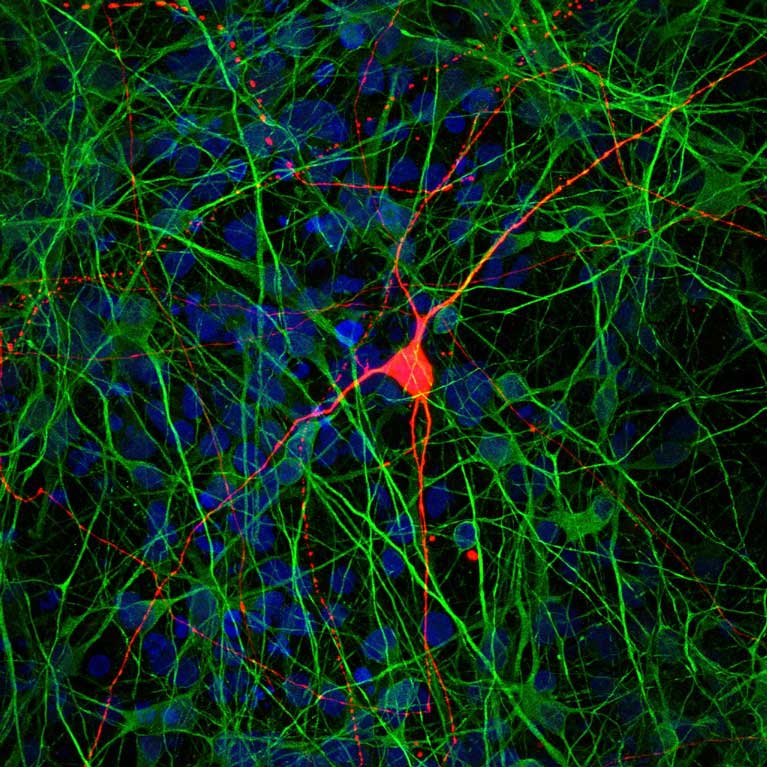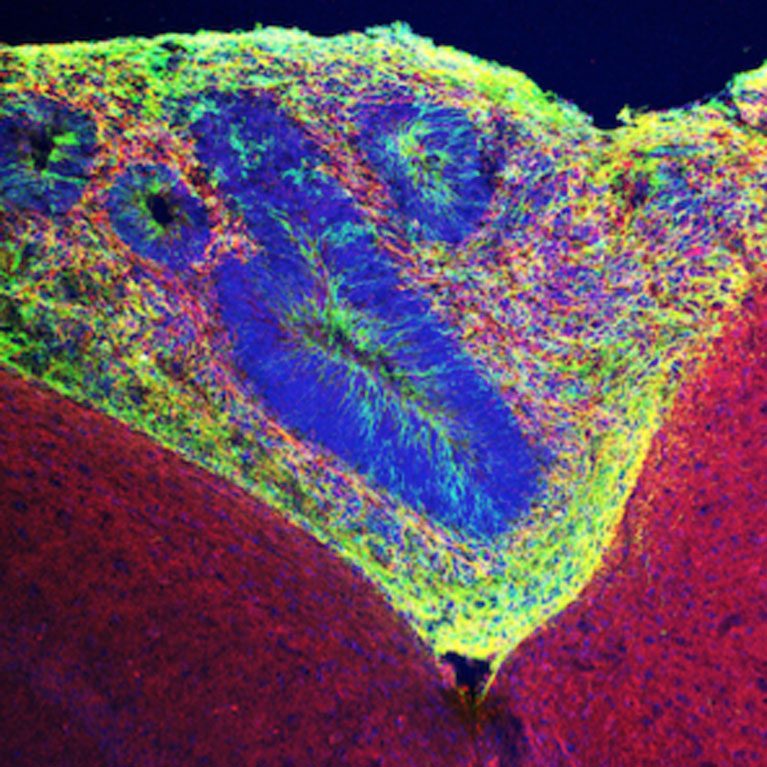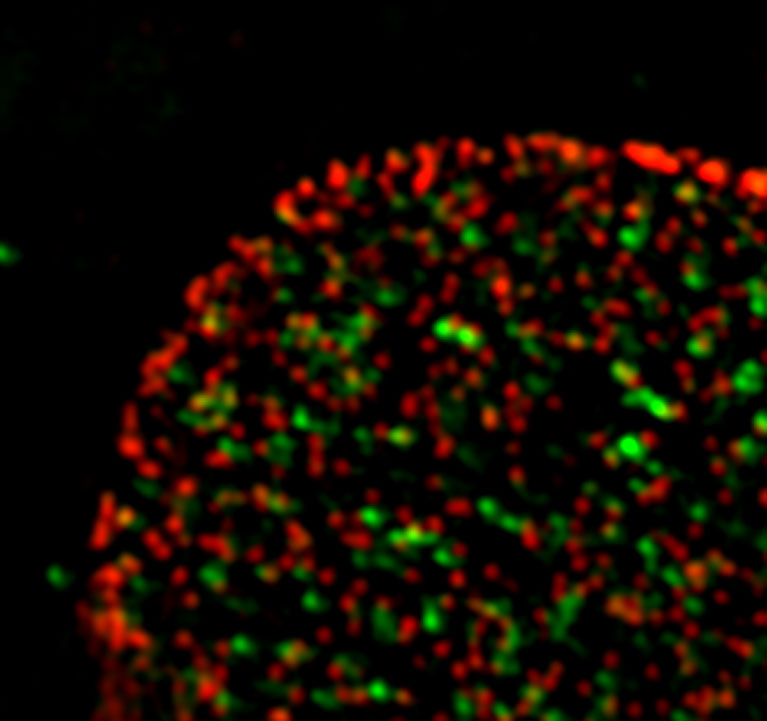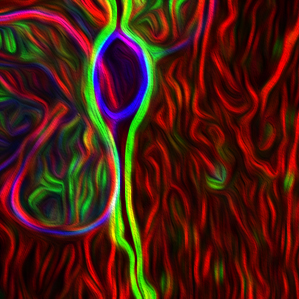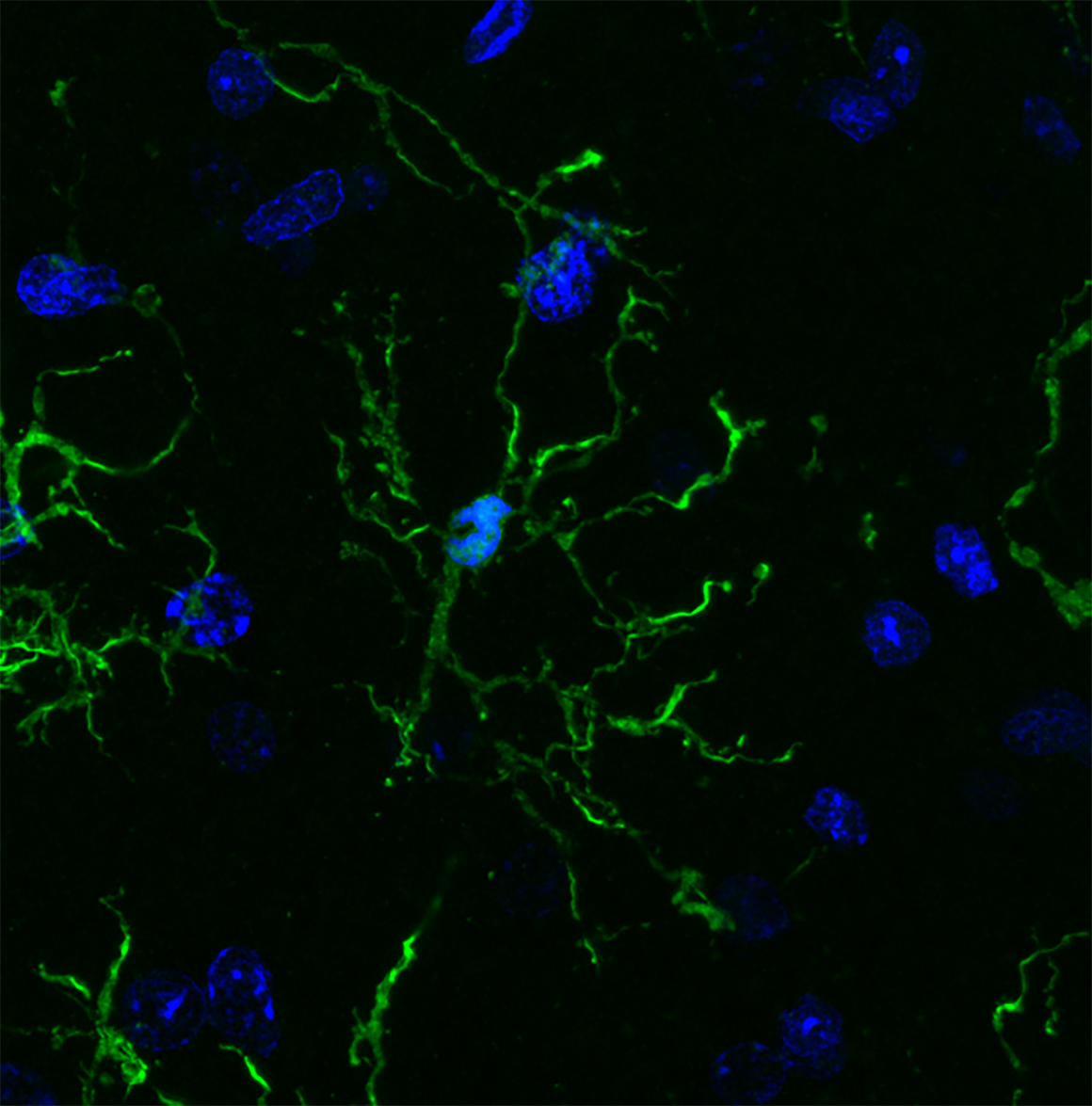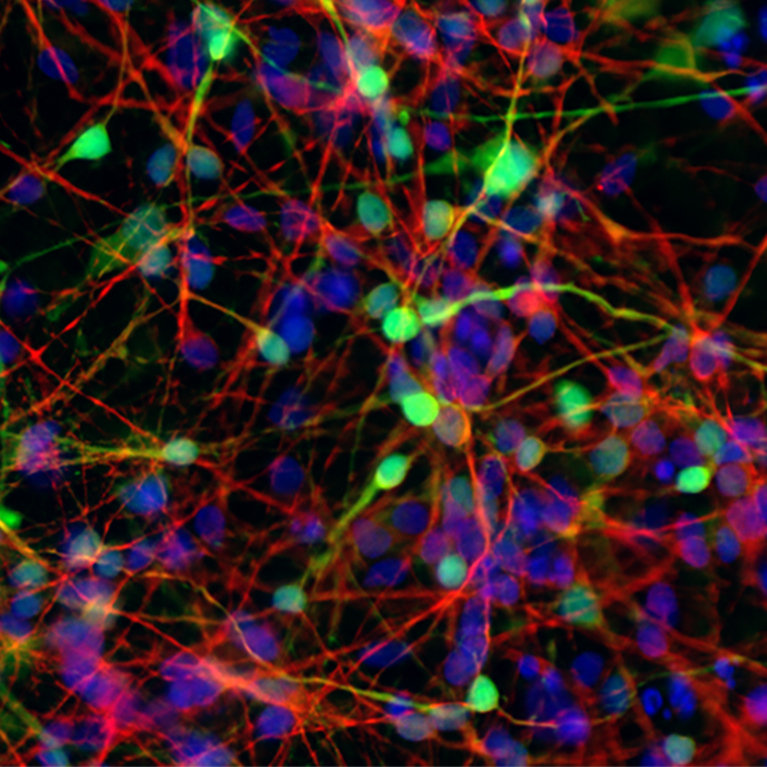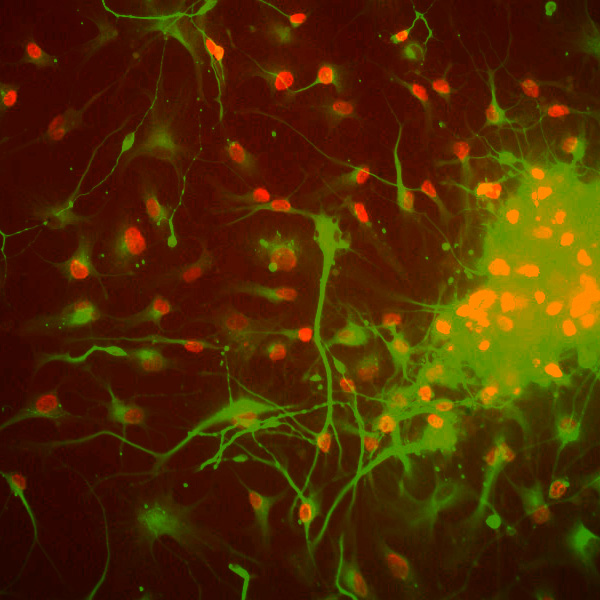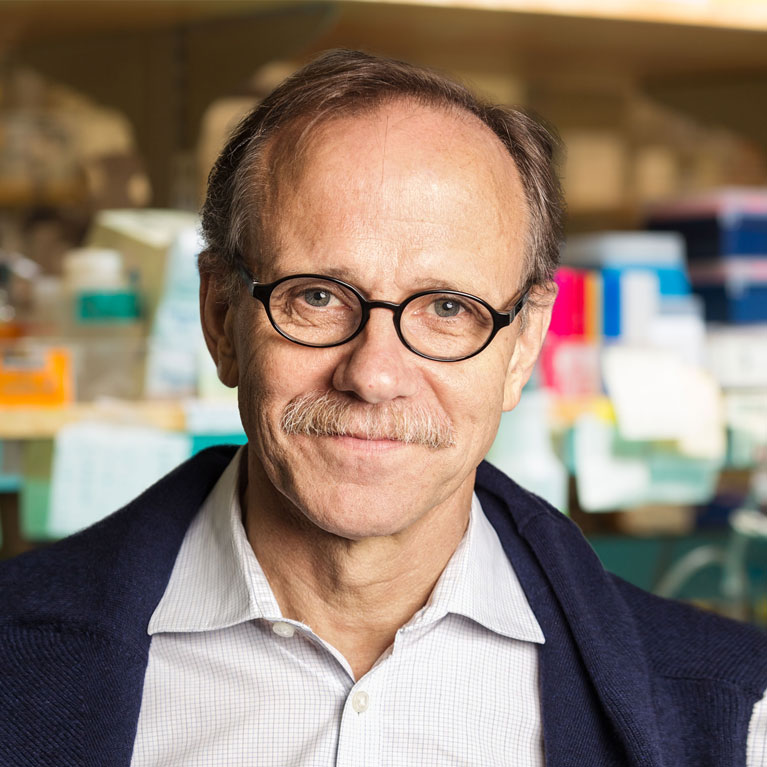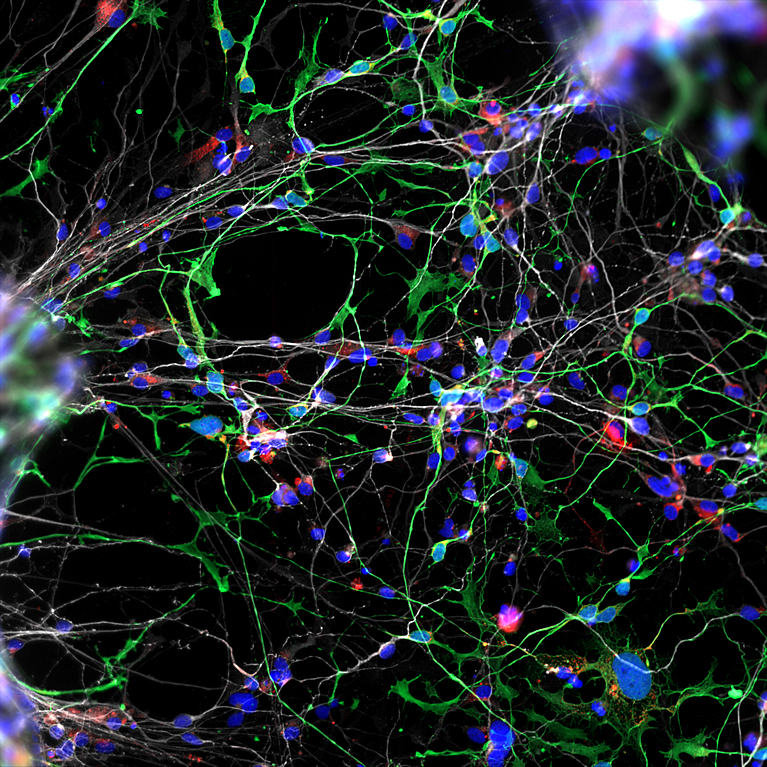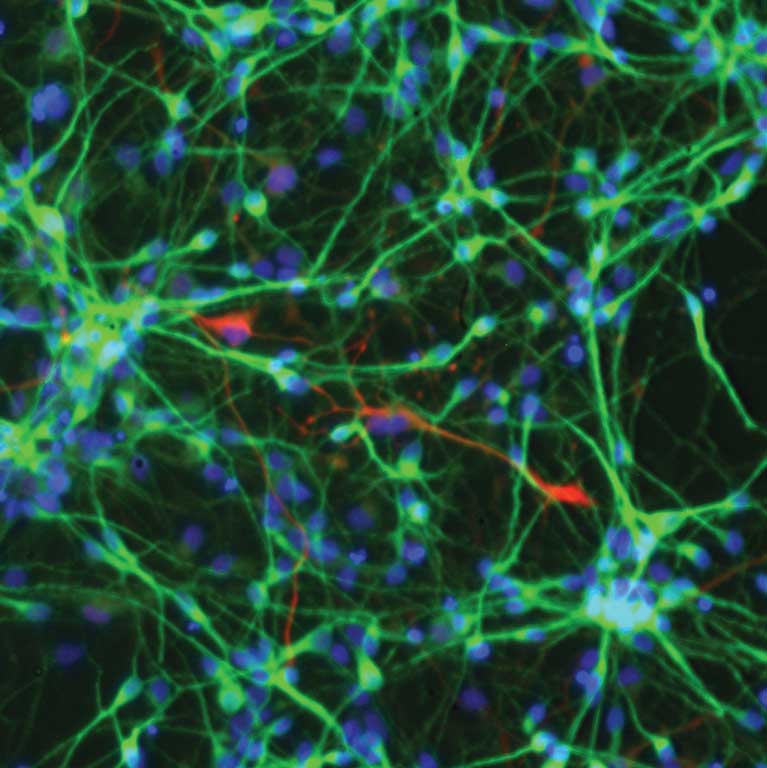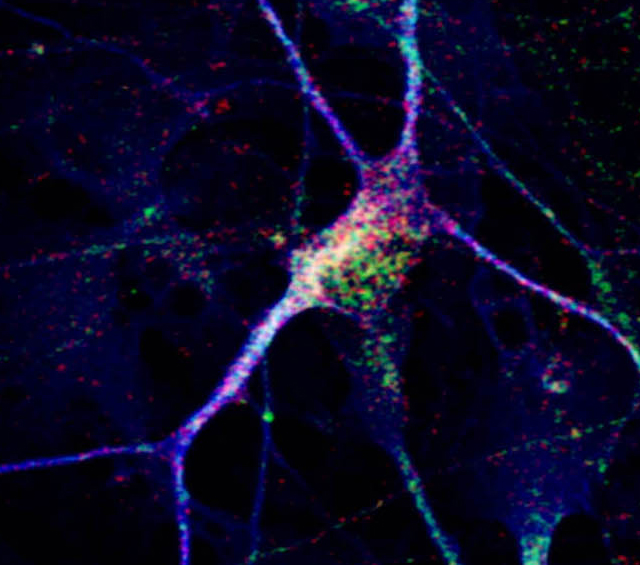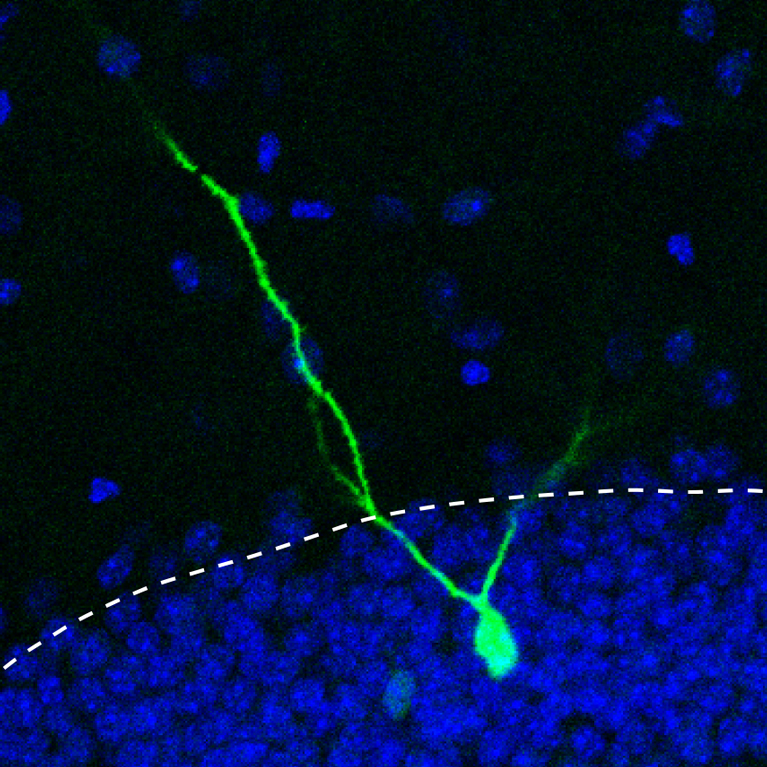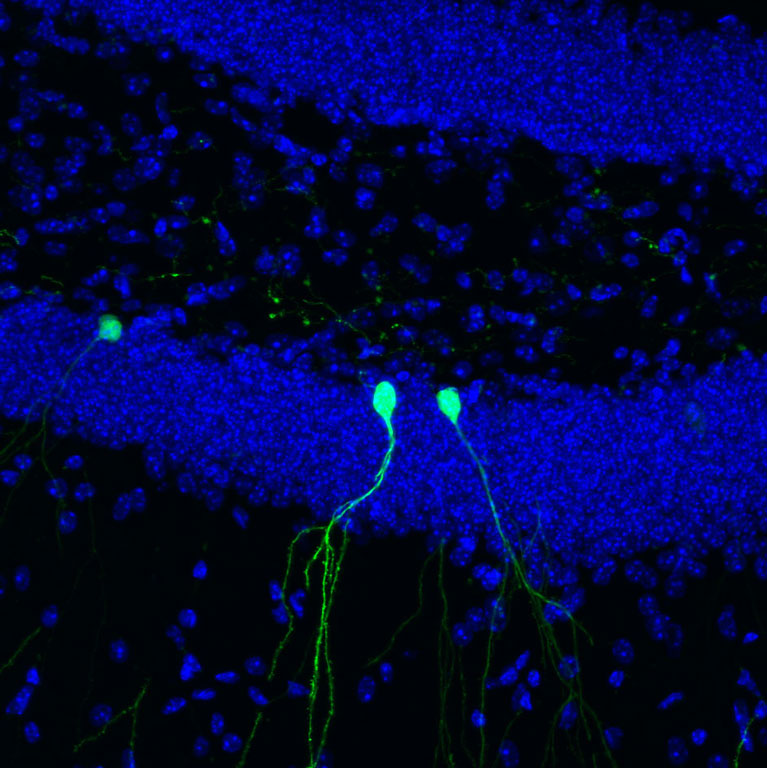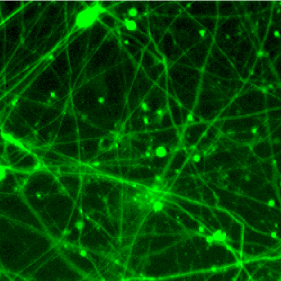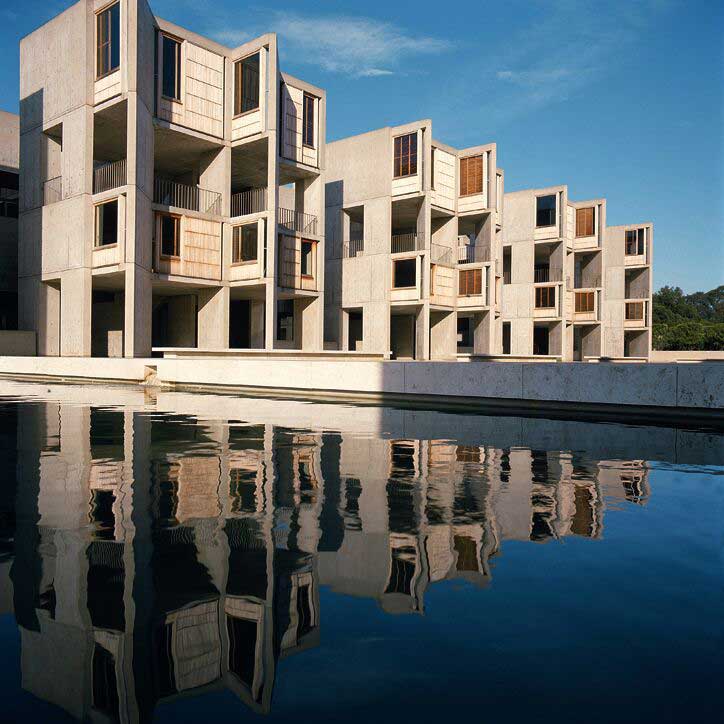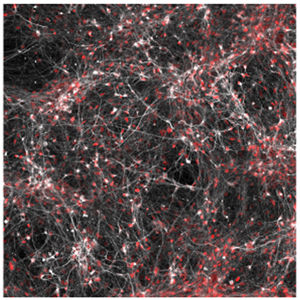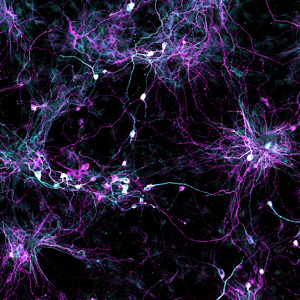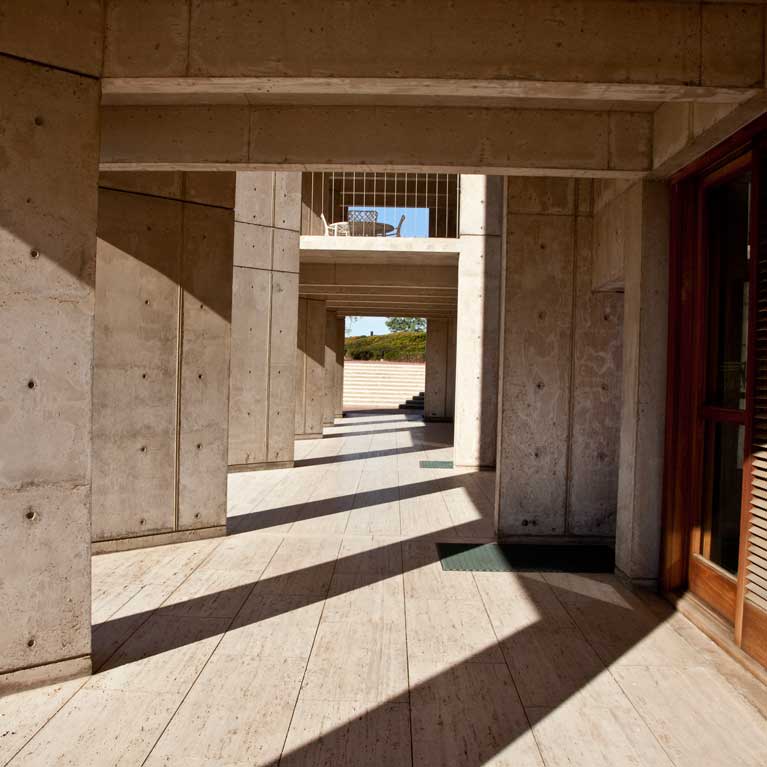Press
Salk Professor Rusty Gage awarded 2024 Taylor International Prize in Medicine
LA JOLLA—Professor Rusty Gage has been awarded the 2024 J. Allyn Taylor International Prize in Medicine by the Schulich School of Medicine & Dentistry and the Robarts Research Institute at Western University. One of the most prestigious medical research awards in Canada, the Taylor Prize recognizes scientists for transformative, career-defining work in basic sciences, translational research, and medical innovations.
Salk awarded $3.6 million by the California Institute for Regenerative Medicine to advance research on brain aging
LA JOLLA—The Salk Institute was awarded $3.6 million by the California Institute for Regenerative Medicine (CIRM), one of the world’s largest institutions dedicated to regenerative medicine. Salk Professor Rusty Gage will lead the new CIRM-funded Shared Resources Laboratory focused on stem cell-based models of aging and neurodegeneration.
Unveiling Telo-seq: A breakthrough in telomere research on aging and cancer
LA JOLLA—Within each of our cells, long strands of DNA are folded into chromosomes and capped with protective structures called telomeres. But telomeres shorten as we age, eventually getting so whittled down that our chromosomes become exposed, and our cells die. However, the specifics of when and how this shortening occurs and whether certain chromosomes are more affected than others have been unclear—until now.
More than just neurons: A new model for studying human brain inflammation
LA JOLLA—The brain is typically depicted as a complex web of neurons sending and receiving messages. But neurons only make up half of the human brain. The other half—roughly 85 billion cells—are non-neuronal cells called glia. The most common type of glial cells are astrocytes, which are important for supporting neuronal health and activity. Despite this, most existing laboratory models of the human brain fail to include astrocytes at sufficient levels or at all, which limits the models’ utility for studying brain health and disease.
Salk researchers earn $1.3 million W. M. Keck Foundation award to study aging brain
LA JOLLA—Salk Institute Professor Rusty Gage and Assistant Professor Pallav Kosuri have been awarded $1.3 million by the W. M. Keck Foundation to fund a novel investigation into the way brain and heart cell functions decline over time due to ribosubstitution events—cellular repair of DNA damage with RNA building blocks rather than DNA building blocks. The award combines the biological discovery of ribosubstitution made by Senior Research Associate Jeff Jones in Gage’s lab with the technological advancements established by Postdoctoral Researcher Yuening Liu in Kosuri’s lab. The W. M. Keck Foundation was established with the goal of generating far-reaching benefits for humanity by supporting outstanding science, engineering, and medical research.
Seven Salk scientists named among best and most highly cited researchers in the world
LA JOLLA—Salk Professors Joseph Ecker, Ronald Evans, Satchidananda Panda, Rusty Gage, and Kay Tye, as well as Assistant Professor Jesse Dixon, have been named to the Highly Cited Researchers list by Clarivate. The 2023 list includes 6,849 researchers from 67 countries, all of whom demonstrate “significant and broad influence reflected in their publication of multiple highly cited papers over the last decade.” This is the ninth consecutive year that Ecker and Gage have made the list. Joseph Nery, a research assistant II in the Ecker lab, was also included on the list.
A new model for understanding human brain immune cells and neurological disorders
LA JOLLA—Situated at the intersection of the human immune system and the brain are microglia, specialized brain immune cells that play a crucial role in development and disease. Although the importance of microglia is undisputed, modeling and studying them has remained a difficult task.
Deteriorating neurons are source of human brain inflammation in Alzheimer’s disease
LA JOLLA—Despite decades of research, Alzheimer’s disease remains a debilitating and eventually fatal dementia with no effective treatment options. More than 95 percent of Alzheimer’s disease cases have no known origin. Now, scientists from the Salk Institute have found that neurons from people with Alzheimer’s disease show deterioration and undergo a late-life stress process called senescence. These neurons have a loss of functional activity, impaired metabolism, and increased brain inflammation.
Ten Salk professors named among best and most highly cited researchers in the world
LA JOLLA—Salk Professors Joseph Ecker, Ronald Evans, Rusty Gage, Christian Metallo, Satchidananda Panda, Reuben Shaw, and Kay Tye, along with Assistant Professor Jesse Dixon, have been named to the Highly Cited Researchers list by Clarivate. This year’s list includes 6,938 researchers from 69 countries and identifies researchers who demonstrate “significant influence in their chosen field or fields through the publication of multiple highly cited papers.” Ecker and Gage have been named to this list every year since 2014, when the regular annual rankings began. Joseph Nery, a research assistant II in the Ecker lab, was also included on the list.
Six Salk professors named among most highly cited researchers in the world
LA JOLLA—Salk Professors Joanne Chory, Joseph Ecker, Rusty Gage, Satchidananda Panda, Reuben Shaw and Kay Tye have been named to the Highly Cited Researchers list by Clarivate. The list identifies researchers who demonstrate “significant influence in their chosen field or fields through the publication of multiple highly cited papers.” Chory, Ecker and Gage have been named to this list every year since 2014, when the regular annual rankings began. This is Tye’s fifth, Shaw’s third and Panda’s first time receiving the designation. Additionally, Ecker appeared in two separate categories: “plant and animal science” and “molecular biology and genetics” and is one of 3.4 percent of researchers selected in two fields. Joseph Nery, a research assistant II in the Ecker lab, was also included on the list.
Salk scientists reveal how brain cells in Alzheimer’s go awry, lose their identity
LA JOLLA—Despite the prevalence of Alzheimer’s, there are still no treatments, in part because it has been challenging to study how the disease develops. Now, scientists at the Salk Institute have uncovered new insights into what goes awry during Alzheimer’s by growing neurons that resemble—more accurately than ever before—brain cells in older patients. And like patients themselves, the afflicted neurons appear to lose their cellular identity.
How brain cells repair their DNA reveals “hot spots” of aging and disease
LA JOLLA—Neurons lack the ability to replicate their DNA, so they’re constantly working to repair damage to their genome. Now, a new study by Salk scientists finds that these repairs are not random, but instead focus on protecting certain genetic “hot spots” that appear to play a critical role in neural identity and function.
Salk’s NOMIS Center receives $9.5 million to shape the future of research into health and immunity
LA JOLLA—As we endure a global viral pandemic, our appreciation for health and immunity has never been greater. Now, thanks to a generous gift from the NOMIS Foundation, Salk’s NOMIS Center for Immunobiology and Microbial Pathogenesis will receive $9.5 million to grow and expand, while continuing to be a leader in health and immunity research.
Salk scientists awarded $1.2 million by Larry L. Hillblom Foundation to study brain aging and dementia
LA JOLLA—A collaborative team of Salk scientists led by Professor John Reynolds will receive $1.2 million over four years as part of a Network Grant from the Larry L. Hillblom Foundation to examine aging across the life span, including age-related neurodegenerative diseases such as Alzheimer’s disease. The research will advance our understanding of aging mechanisms at the cognitive, genomic and cellular levels with potentially direct translatability to humans. Other members of the team include Salk President and Professor Rusty Gage, Staff Scientist Uri Manor, Senior Staff Researcher Courtney Glavis-Bloom, and Carol Marchetto, an assistant professor at the University of California San Diego.
New clues why gold standard treatment for bipolar disorder doesn’t work for majority of patients
LA JOLLA—Lithium is considered the gold standard for treating bipolar disorder (BD), but nearly 70 percent of people with BD don’t respond to it. This leaves them at risk for debilitating, potentially life-threatening mood swings. Researchers at the Salk Institute have found that the culprit may lie in gene activity—or lack of it.
Five Salk professors named among most highly cited researchers in the world
LA JOLLA—Salk Professors Joanne Chory, Joseph Ecker, Rusty Gage, Reuben Shaw and Kay Tye have been named to the Highly Cited Researchers list by Clarivate. The list identifies researchers who demonstrate “significant influence in their chosen field or fields through the publication of multiple highly cited papers.” Professors Chory, Ecker and Gage have been named to this list every year since 2014, when the regular annual rankings began. This is Professor Tye’s fourth consecutive time and Professor Shaw’s second consecutive time receiving the designation. Joseph Nery, a research assistant II in the Ecker lab, was also included on the list.
Top San Diego research institutions, led by Salk, to receive an expected $5 million to study cellular aging in humans
LA JOLLA—The Salk Institute will establish a world-class San Diego Nathan Shock Center (SD-NSC), a consortium with Sanford Burnham Prebys Medical Discovery Institute and the University of California San Diego (UC San Diego), to study cellular and tissue aging in humans. The Center will be funded by a grant from the National Institute on Aging (NIA) of the National Institutes of Health expected to total $5 million over the next 5 years (NIA grant number P30AG068635).
Altered potassium levels in neurons may cause mood swings in bipolar disorder
LA JOLLA—People with bipolar disorder experience dramatic shifts in mood, oscillating between often debilitating periods of mania and depression. While a third of people with bipolar disorder can be successfully treated with the drug lithium, the majority of patients struggle to find treatment options that work.
Salk scientists link rapid brain growth in autism to DNA damage
LA JOLLA—Researchers at the Salk Institute have discovered a unique pattern of DNA damage that arises in brain cells derived from individuals with a macrocephalic form of autism spectrum disorder (ASD). The observation, published in the journal Cell Stem Cell, helps explain what might go awry in the brain during cell division and development to cause the disorder.
Eight Salk professors named among most highly cited researchers in the world
LA JOLLA—Salk Professors Joanne Chory, Joseph Ecker, Ronald Evans, Rusty Gage, Juan Carlos Izpisua Belmonte, Terrence Sejnowski, Reuben Shaw and Kay Tye have been named to the Highly Cited Researchers list by Clarivate Analytics. The list selects researchers for demonstrating “significant and broad influence” reflected by the production of multiple highly cited papers that rank in the top 1 percent by citations for field and year.
Salk Institute hits play on new podcast series
LA JOLLA—A new podcast series called Where Cures Begin launches this week and features one-on-one conversations with Salk researchers working at the forefront of their respective scientific fields, from cancer and neuroscience to plant biology, circadian science and more. The eight episodes of season 1, which will be released weekly beginning October 30, 2019, include interviews with the following Salk scientists:
The Kavli Foundation gifts Salk $3 million for cutting-edge neuroscience research
LA JOLLA—The Salk Institute announced today that The Kavli Foundation has committed $3 million to support ongoing neuroscience research at Salk as part of the joint UCSD-Salk Kavli Institute for Brain and Mind (KIBM). The gift—matched by an additional $3 million from Salk—will add $6 million to the KIBM Endowment, to enable faculty in neuroscience to work on the most impactful questions in the field. The Kavli Institute for Brain and Mind was established through a $15.5 million endowment commitment from The Kavli Foundation, shared between Salk and UC San Diego.
When neurons are out of shape, antidepressants may not work
LA JOLLA—Selective serotonin reuptake inhibitors (SSRIs) are the most commonly prescribed medication for major depressive disorder (MDD), yet scientists still do not understand why the treatment does not work in nearly thirty percent of patients with MDD. Now, Salk Institute researchers have discovered differences in growth patterns of neurons of SSRI-resistant patients. The work, published in Molecular Psychiatry on March 22, 2019, has implications for depression as well as other psychiatric conditions such as bipolar disorder and schizophrenia that likely also involve abnormalities of the serotonin system in the brain.
Uncovering the evolution of the brain
LA JOLLA—What makes us human, and where does this mysterious property of “humanness” come from? Humans are genetically similar to chimpanzees and bonobos, yet there exist obvious behavioral and cognitive differences. Now, researchers from the Salk Institute, in collaboration with researchers from the anthropology department at UC San Diego, have developed a strategy to more easily study the early development of human neurons compared with the neurons of nonhuman primates. The study, which appeared in eLife on February 7, 2019, offers scientists a novel tool for fundamental brain research.
When neurons get the blues: hyperactive brain cells may be to blame when antidepressants don’t work
LA JOLLA—The most commonly prescribed antidepressants, selective serotonin reuptake inhibitors (SSRIs), lift the fog of depression for many people. But for around a third of people with major depressive disorder, SSRIs don’t make much of a difference. Now, researchers from the Salk Institute have pinned down a possible reason why—the neurons in at least some of these patients’ brains may become hyperactive in the presence of the drugs. The study appeared in Molecular Psychiatry on January 30, 2019.
Salk team reveals clues into early development of autism spectrum disorder
LA JOLLA—Autism spectrum disorder (ASD) is a relatively common developmental disorder of communication and behavior that affects about 1 in 59 children in the US, according to the Centers for Disease Control and Prevention. Despite its prevalence, it is still unclear what causes the disease and what are the best ways to treat it.
Salk President Rusty Gage named to new five-year term to lead Institute
LA JOLLA—The Board of Trustees of the Salk Institute, in consultation with the faculty and a search committee comprised of Board members, voted to extend a new five-year term to Rusty Gage, who became the Institute’s President a year ago, expanding his tenure through 2024.
Trio of Salk scientists named among most highly cited researchers in the world
LA JOLLA—Salk Professors Joanne Chory, Joseph Ecker and Rusty Gage have once again been named to the Highly Cited Researchers list by Clarivate Analytics (formerly Thomson Reuters). The list selects researchers for “exceptional research performance” demonstrated by the production of multiple highly cited papers that rank in the top 1 percent by citations for field and year. Additionally, among the 4,058 researchers named as Highly Cited, Ecker is one of 194 researchers appearing in two separate categories: “plant and animal science,” as well as “molecular biology and genetics.”
Salk awarded $19.2 million by the American Heart Association-Allen Initiative to study Alzheimer’s and aging in the brain
LA JOLLA—A team of Salk Institute researchers led by President Rusty Gage has been awarded $19.2 million over eight years by the American Heart Association-Allen Initiative in Brain Health and Cognitive Impairment to investigate mechanisms underlying Alzheimer’s disease and aging-related cognitive decline and uncover new therapies. This bold venture will comprehensively analyze interactions between five areas key to brain health: proteins, genes, metabolism, inflammation and epigenetics.
Impaired energy production may explain why the brain is susceptible to age-related diseases
LA JOLLA—Defective energy production in old neurons might explain why our brains are so prone to age-related diseases. Salk researchers used a new method to discover that cells from older individuals had impaired mitochondria—the power stations of cells—and reduced energy production. A better understanding of the effects of aging on mitochondria could reveal more about the link between mitochondrial dysfunction and age-related brain diseases, such as Alzheimer’s and Parkinson’s.
Interconnected cells-in-a-dish let researchers study brain disease
LA JOLLA—By creating multiple types of neurons from stem cells and observing how they interact, Salk scientists have developed a new way to study the connections between brain cells in the lab. Using the technique, which generates a partial model of the brain, the team showed how communication between neurons is altered in people with schizophrenia. The work appeared in Cell Stem Cell on May 3, 2018.
Grafted brain organoids provide insight into neurological disorders
LA JOLLA—Many neurological disorders—Alzheimer’s, schizophrenia, autism, even depression—have lagged behind in new therapies. Because the brain is so complex, it can be difficult to discover new drugs and even when a drug is promising in animal models, it often doesn’t work for humans.
Early life experiences influence DNA in the adult brain
LA JOLLA—In the perennial question of nature versus nurture, a new study suggests an intriguing connection between the two. Salk Institute scientists report in the journal Science that the type of mothering a female mouse provides her pups actually changes their DNA. The work lends support to studies about how childhood environments affect brain development in humans and could provide insights into neuropsychiatric disorders such as depression and schizophrenia.
Salk Institute augments leadership structure
LA JOLLA—With Elizabeth Blackburn planning to retire at the end of this summer, the Salk Institute has augmented its operational leadership structure, naming Professor Fred “Rusty” Gage as Interim President and Blackburn as President Emerita, as the Board of Trustees begins a search for a permanent successor. In December, Blackburn announced plans to retire and engage even more broadly in issues related to science and science policy.
Partnership for a healthy brain
LA JOLLA—Salk Institute scientists have discovered that an interaction between two key proteins helps regulate and maintain the cells that produce neurons. The work, published in Cell Stem Cell on September 14, 2017, offers insight into why an imbalance between these precursor cells and neurons might contribute to mental illness or age-related brain disease.
A star is born: lesser-known brain cell takes center stage
LA JOLLA—Neurons have long enjoyed the spotlight in neuroscience—and for good reason: they are incredibly important cellular actors. But, increasingly, star-shaped support cells called astrocytes are being seen as more than bit players in the brain’s rich pageant.
Brain’s immune cells linked to Alzheimer’s, Parkinson’s, schizophrenia
LA JOLLA—Scientists have, for the first time, characterized the molecular markers that make the brain’s front lines of immune defense—cells called microglia—unique. In the process, they discovered further evidence that microglia may play roles in a variety of neurodegenerative and psychiatric illnesses, including Alzheimer’s, Parkinson’s and Huntington’s diseases as well as schizophrenia, autism and depression.
New method predicts who will respond to lithium therapy
LA JOLLA—For roughly one-third of people diagnosed with bipolar disorder, lithium is a miracle drug, effectively treating both their mania and depression. But once someone is diagnosed, it can take up to a year to learn whether that person will be among the 30 percent who respond to lithium or the 70 percent who do not.
The brain’s stunning genomic diversity revealed
LA JOLLA—Our brains contain a surprising diversity of DNA. Even though we are taught that every cell in our body has the same DNA, in fact most cells in the brain have changes to their DNA that make each neuron a little different.
Johns Hopkins and Salk co-lead $15 million initiative to unravel bipolar disorder and schizophrenia
LA JOLLA—The Johns Hopkins University School of Medicine and the Salk Institute for Biological Studies will co-lead a $15.4 million effort to develop new systems for quickly screening libraries of drugs for potential effectiveness against schizophrenia and bipolar disorder, the National Institute of Mental Health (NIMH) has announced. The consortium, which includes four academic or nonprofit institutions and two industry partners, will be led by Hongjun Song, PhD, of Johns Hopkins and Rusty Gage, PhD, of Salk.
Neurodevelopmental model of Williams Syndrome offers insight into human social brain
LA JOLLA—In a study spanning molecular genetics, stem cells and the sciences of both brain and behavior, researchers at University of California, San Diego and the Salk Institute have created a neurodevelopmental model of a rare genetic disorder that may provide new insights into the underlying neurobiology of the human social brain.
Power up: growing neurons undergo major metabolic shift
LA JOLLA—Our brains can survive only for a few minutes without oxygen. Salk Institute researchers have now identified the timing of a dramatic metabolic shift in developing neurons, which makes them become dependent on oxygen as a source of energy.
New neurons reveal clues about an individual’s autism
LA JOLLA—The brains of some people with autism spectrum disorder grow faster than usual early on in life, often before diagnosis. A new study co-led by Salk Institute scientists has employed a cutting-edge stem cell technique to unravel the mechanisms driving the mysterious phenomenon of excess brain growth, which affects as many as 30 percent of people with autism.
Small molecule keeps new adult neurons from straying, may be tied to schizophrenia
LA JOLLA—A small stretch of ribonucleic acid called microRNA could make the difference between a healthy adult brain and one that’s prone to disorders including schizophrenia.
Adult brain prunes branched connections of new neurons
LA JOLLA—When tweaking its architecture, the adult brain works like a sculptor—starting with more than it needs so it can carve away the excess to achieve the perfect design. That’s the conclusion of a new study that tracked developing cells in an adult mouse brain in real time.
Tamping down neurons’ energy use could treat neurodegeneration
LA JOLLA—Salk Institute scientists showed how an FDA-approved drug boosts the health of brain cells by limiting their energy use. Like removing unnecessary lighting from a financially strapped household to save on electricity bills, the drug—called rapamycin—prolongs the survival of diseased neurons by forcing them to reduce protein production to conserve cellular energy.
Salk professor Rusty Gage elected to the National Academy of Sciences Governing Council
LA JOLLA—Distinguished Salk Institute Professor Rusty Gage is one of four new members to be elected to the National Academy of Sciences (NAS) Governing Council. Gage is a professor in Salk’s Laboratory of Genetics and holds the Vi and John Adler Chair for Research on Age-Related Neurodegenerative Disease.
Three Salk scientists make Thomson Reuters’ list of “The World’s Most Influential Scientific Minds”
Salk Institute scientists Joanne Chory, Joseph Ecker and Rusty Gage have been named to the 2015 list of “The World’s Most Influential Scientific Minds” by Thomson Reuters.
Salk scientists make serotonin-transmitting neurons in a dish
LA JOLLA—Scientists at the Salk Institute have taken human skin cells and turned them into neurons that signal to one another using serotonin, a brain chemical that is crucial to our mental well-being.
Bipolar patients’ brain cells predict response to lithium
LA JOLLA–The brain cells of patients with bipolar disorder, characterized by severe swings between depression and elation, are more sensitive to stimuli than other people’s brain cells, researchers have discovered.
Salk scientists discover protein factories hidden in human jumping genes
LA JOLLA–Scientists have discovered a previously unknown wellspring of genetic diversity in humans, chimps and most other primates. This diversity arises from a new component of itinerant sections of genetic code known as jumping genes.
Researchers learn how to grow old brain cells
LA JOLLA–For the first time, scientists can use skin samples from older patients to create brain cells without rolling back the youthfulness clock in the cells first. The new technique, which yields cells resembling those found in older people’s brains, will be a boon to scientists studying age-related diseases like Alzheimer’s and Parkinson’s.
Rusty Gage receives Allen Distinguished Investigator Award to reveal biology of Alzheimer’s disease
LA JOLLA–The Salk Institute today announced that Rusty Gage, Salk professor in the Laboratory of Genetics, has been selected as one of five recipients of the Paul G. Allen Family Foundation’s Allen Distinguished Investigator (ADI) program and will be awarded $1.5 million to conduct his research. These researchers have projects aimed at uncovering the elusive biological foundations of Alzheimer’s disease. The projects are funded at a total of $7 million over three years.
New stem cell research points to early indicators of schizophrenia
LA JOLLA—Using new stem cell technology, scientists at the Salk Institute have shown that neurons generated from the skin cells of people with schizophrenia behave strangely in early developmental stages, providing a hint as to ways to detect and potentially treat the disease early.
Salk lab turns skin cells into human airway tissue
LA JOLLA—Using reprogrammed skin cells, researchers have for the first time used stem cell techniques to grow fully functional assemblies of the cells that line airways leading to the lungs. The lab-grown airway tissue can now be used to study the molecular basis for lung diseases—from rare genetic disorders to common afflictions like asthma and emphysema—and test new drugs to treat the diseases.
Scientists reveal potential link between brain development and breast cancer gene
LA JOLLA—Scientists at the Salk Institute have uncovered details into a surprising—and crucial—link between brain development and a gene whose mutation is tied to breast and ovarian cancer. Aside from better understanding neurological damage associated in a small percentage of people susceptible to breast cancers, the new work also helps to better understand the evolution of the brain.
Study finds a patchwork of genetic variation in the brain
LA JOLLA, CA—It was once thought that each cell in a person’s body possesses the same DNA code and that the particular way the genome is read imparts cell function and defines the individual. For many cell types in our bodies, however, that is an oversimplification. Studies of neuronal genomes published in the past decade have turned up extra or missing chromosomes, or pieces of DNA that can copy and paste themselves throughout the genomes.
Induced pluripotent stem cells reveal differences between humans and great apes
LA JOLLA, CA—Researchers at the Salk Institute for Biological Studies have, for the first time, taken chimpanzee and bonobo skin cells and turned them into induced pluripotent stem cells (iPSCs), a type of cell that has the ability to form any other cell or tissue in the body.
The neuroscience of finding your lost keys
LA JOLLA, CA—Ever find yourself racking your brain on a Monday morning to remember where you put your car keys?
Salk scientists develop faster, safer method for producing stem cells
LA JOLLA, CA—A new method for generating stem cells from mature cells promises to boost stem cell production in the laboratory, helping to remove a barrier to regenerative medicine therapies that would replace damaged or unhealthy body tissues.
What can the water monster teach us about tissue regeneration in humans?
LA JOLLA, CA—Based on two new studies by researchers at the Salk Institute for Biological Studies, regeneration of a new limb or organ in a human will be much more difficult than the mad scientist and supervillain, Dr. Curt Connors, made it seem in the Amazing Spider-man comics and films.
Neurons derived from cord blood cells may represent new therapeutic option
LA JOLLA, CA—For more than 20 years, doctors have been using cells from blood that remains in the placenta and umbilical cord after childbirth to treat a variety of illnesses, from cancer and immune disorders to blood and metabolic diseases.
Salk scientist receives distinguished NIH award for transformative research
LA JOLLA, CA—Dr. Fred Gage, a professor in the Salk Institute Laboratory of Genetics and holder of the Vi and John Adler Chair for Research on Age-Related Neurodegenerative Diseases, has been named a 2011 recipient of the prestigious National Institutes of Health (NIH) Director’s Transformative Research Projects (T-R01) program.
Salk Institute scientist garners international esteem on two continents
LA JOLLA, CA—Lending credence to the popular notion that good things come in threes, Salk Institute professor Fred “Rusty” Gage, Ph.D. recently was recognized with a trio of honors on two continents: Spain’s Cátedra Santiago Grisolía Award 2011, an honorary doctorate in medicine from Lund University in Sweden and appointment as president of the International Society for Stem Cell Research (ISSCR).
Patients’ own cells yield new insights into the biology of schizophrenia
LA JOLLA, CA—After a century of studying the causes of schizophrenia-the most persistent disabling condition among adults-the cause of the disorder remains unknown. Now induced pluripotent stem cells (iPSCs) generated from schizophrenic patients have brought researchers from the Salk Institute for Biological Studies a step closer to a fundamental understanding of the biological underpinnings of the disease.
Stem cell leader awarded $2.3 million grant for Parkinson’s
LA JOLLA, CA—The Salk Institute has been awarded a $2.3 million grant by the California Institute for Regenerative Medicine (CIRM) for translational research focusing on developing a novel stem cell based therapy for Parkinson’s disease.
Rett syndrome mobilizes jumping genes in the brain
LA JOLLA, CA–With few exceptions, jumping genes-restless bits of DNA that can move freely about the genome-are forced to stay put. In patients with Rett syndrome, however, a mutation in the MeCP2 gene mobilizes so-called L1 retrotransposons in brain cells, reshuffling their genomes and possibly contributing to the symptoms of the disease when they find their way into active genes, report researchers at the Salk Institute for Biological Studies.
Modeling autism in a dish
LA JOLLA, CA—A collaborative effort between researchers at the Salk Institute for Biological Studies and the University of California, San Diego, successfully used human induced pluripotent stem (iPS) cells derived from patients with Rett syndrome to replicate autism in the lab and study the molecular pathogenesis of the disease.
Work-life balance: Brain stem cells need their rest, too
LA JOLLA, CA—Stem cells in the brain remain dormant until called upon to divide and make more neurons. However, little has been known about the molecular guards that keep them quiet. Now scientists from the Salk Institute for Biological Studies have identified the signal that prevents stem cells from proliferating, protecting the brain against too much cell division and ensuring a pool of neural stem cells that lasts a lifetime.
American Philosophical Society inducts Fred H. Gage
LA JOLLA—Salk scientist Fred H. Gage, a professor in the Laboratory for Genetics and the Vi and John Adler Chair for Research on Age-Related Neurodegenerative Diseases, has been elected to the American Philosophical Society (APS). Founded in 1743 by Benjamin Franklin and modeled after the Royal Society of London, the APS was the first organization in America to promote scientific endeavors and knowledge.
Salk scientist has been elected a member of the European Molecular Biology Organization
LA JOLLA, CA—Dr. Fred H. Gage, a professor in the Laboratory for Genetics at the Salk Institute and the Vi and John Adler Chair for Research on Age-Related Neurodegenerative Diseases, is one of only three Americans elected an Associate Member to the European Molecular Biology Organization (EMBO) in 2009.
Newborn brain cells show the way
LA JOLLA, CA—Although the fact that we generate new brain cells throughout life is no longer disputed, their purpose has been the topic of much debate. Now, an international collaboration of researchers made a big leap forward in understanding what all these newborn neurons might actually do. Their study, published in the July 10, 2009, issue of the journal Science, illustrates how these young cells improve our ability to navigate our environment.
Newborn brain cells “time-stamp” memories
La Jolla, CA — “Remember when…?” is how many a wistful trip down memory lane begins. But just how the brain keeps tabs on what happened and when is still a matter of speculation. A computational model developed by scientists at the Salk Institute for Biological Studies now suggests that newborn brain cells—generated by the thousands each day—add a time-related code, which is unique to memories formed around the same time.
A novel human stem cell-based model of ALS opens doors for rapid drug screening
La Jolla, CA — Long thought of as mere bystanders, astrocytes are crucial for the survival and well-being of motor neurons, which control voluntary muscle movements. In fact, defective astrocytes can lay waste to motor neurons and are the main suspects in the muscle-wasting disease amyotrophic lateral sclerosis (ALS).
Newborn neurons in the adult brain can settle in the wrong neighborhood
La Jolla, CA–In a study that could have significant consequences for neural tissue transplantation strategies, researchers at the Salk Institute for Biological Studies report that inactivating a specific gene in adult neural stem cells makes nerve cells emerging from those precursors form connections in the wrong part of the adult brain.
Salk Scientist Fred H. Gage to Receive the Keio Medical Science Prize
La Jolla – Salk researcher Dr. Fred H. Gage, professor in the Laboratory of Genetics, has been awarded the Keio Medical Science Prize for his discovery of the physiological role of adult neurogenesis in mammalian brains. He will officially receive the award during a ceremony at Keio University’s School of Medicine in Japan on Nov. 21.
Salk researchers reprogram adult stem cells in their natural environment
La Jolla, CA – In recent years, stem cell researchers have become very adept at manipulating the fate of adult stem cells cultured in the lab. Now, researchers at the Salk Institute for Biological Studies achieved the same feat with adult neural stem cells still in place in the brain. They successfully coaxed mouse brain stem cells bound to join the neuronal network to differentiate into support cells instead.
UC San Diego and Salk Institute Establish Center to Study the Origin of Humans
La Jolla, CA – Perhaps the oldest question in the world is “where do I come from?”
Newborn brain cells modulate learning and memory
La Jolla, CA – Boosted by physical and mental exercise, neural stem cells continue to sprout new neurons throughout life, but the exact function of these newcomers has been the topic of much debate. Removing a genetic master switch that maintains neural stem cells in their proliferative state finally gave researchers at the Salk Institute for Biological Studies some definitive answers.
Newborn neurons like to hang with the in-crowd
La Jolla, CA – Like any new kid on the block that tries to fit in, newborn brain cells need to find their place within the existing network of neurons. The newcomers jump right into the fray and preferentially reach out to mature brain cells that are already well connected within the established circuitry, report scientists at the Salk Institute for Biological Studies in the online edition of Nature Neuroscience.
Life and death in the hippocampus: what young neurons need to survive
La Jolla, CA – Whether newborn nerve cells in adult brains live or die depends on whether they can muscle their way into networks occupied by mature neurons. Neuroscientists at the Salk Institute for Biological Studies pin-pointed the molecular survival gear required for a young neuron to successfully jump into the fray and hook up with other cells.
Finding a cellular Neverland: How stem cells stay childlike
La Jolla, CA – Despite their celebrated “immortality,” the capacity of embryonic stem (ES) cells for endless division has its limits. After a very extended childhood spent dividing in a culture dish, even stem cells tend to grow up and assume adult roles as workaday nerve, muscle, or blood cells, never to return to their youthful state.
Human embryonic stem cells integrate successfully into mouse brain
La Jolla, CA – Previous studies have shown that undifferentiated human embryonic stem cells (hESC) can survive in the brains of laboratory rats with Parkinson’s disease. But until now it was unclear whether hESCs can become fully functional members of the host animal’s neuronal architecture – a basic necessity if stem cells are ever to be used in medical treatments replenishing missing or damaged neurons in human patients with neurodegenerative diseases such as Parkinson’s or Alzheimer’s disease.
“Jumping genes” contribute to the uniqueness of individual brains
La Jolla, CA – Brains are marvels of diversity: no two look the same – not even those of otherwise identical twins. Scientists at the Salk Institute for Biological Studies may have found one explanation for the puzzling variety in brain organization and function: mobile elements, pieces of DNA that can jump from one place in the genome to another, randomly changing the genetic information in single brain cells. If enough of these jumps occur, they could allow individual brains to develop in distinctly different ways.
Salk scientist Rusty Gage elected to American Academy of Arts and Sciences; Awardees also include sculptor, actor and Supreme Court Chief Justice
La Jolla, CA – Fred H. “Rusty” Gage, Ph.D., whose basic research at the Salk Institute for Biological Studies has advanced scientific understanding about the potential of the adult brain and nervous system to repair itself, has been elected a Fellow of the American Academy of Arts and Sciences, a distinction awarded annually to top individuals in business, government, public affairs, the arts and popular culture as well as biomedical research.
Current Human Embryonic Stem Cell Lines Contaminated With Potentially Dangerous Non-Human Molecule, UCSD/Salk Team Finds
La Jolla, CA – Currently available lines of human embryonic stem cells have been contaminated with a non-human molecule that compromises their potential therapeutic use in human subjects, according to research by investigators at the University of California, San Diego (UCSD) School of Medicine and the Salk Institute in La Jolla, California.
New Findings Reopen Debate About Adult Stem Cell Plasticity
La Jolla, CA – Adult stem cells in the brain can change their destiny and become blood vessel cells instead of nerve cells, a Salk Institute study has found.
Stem Cell Regulator Could Hold Key to Staving Off Age-related Brain Changes
La Jolla, CA – A brain-specific genetic switch protein known as a receptor has been found to control the fate of adult stem cells in the brain, according to a Salk Institute study.
Gene Therapy Postpones Lou Gehrig’s Disease Symptoms
La Jolla, CA – A unique gene therapy method postpones the symptoms and nearly doubles the life span in a mouse animal model of Lou Gehrig’s disease, a research team led by the Salk Institute has found.
Salk Professor Fred H. Gage Elected to National Academy of Sciences
La Jolla, CA – Salk Institute Professor Fred H. Gage has been elected to the National Academy of Sciences. The election was held April 29 during the business session of the 140th annual meeting of the Academy. Election to membership in the academy is considered one of the highest honors that can be accorded a U.S. scientist or engineer.
Salk Scientists Demonstrate For The First Time That Newly Born Brain Cells Are Functional In The Adult Brain
La Jolla, CA – Salk Institute scientists have observed for the first time that new cells in the adult brain grow and mature over time, functioning just like any of their neighboring neurons.
Neural Progenitor Cells Recovered From Postmortem And Adult Tissue
La Jolla, CA – Salk Institute scientists have isolated cells from the brains of human cadavers that can grow, divide and form specialized classes of brain cells. Their findings indicate that postmortem tissue may be a potential source of multipotent stem cells, with a variety of uses and applications.
Exercise Makes Mice Smarter, Salk Scientists Demonstrate
La Jolla, CA – Should you hit the treadmill before hitting the books?
Running boosts number of brain cells, according to new Salk study
La Jolla, CA – Can regular exercise strengthen the brain? According to a new Salk study, animals that get regular voluntary exercise on running wheels grow more new brain cells than sedentary counterparts.
Slow-learning mice can improve learning speed when raised in enriched environment
La Jolla, CA – Like their human counterparts, all mice are not created equal when it comes to learning new tasks.
Human brains do sprout new cells according to new Salk study
La Jolla, CA – Like bubbles fizzing from fine champagne, it has long been assumed that our supply of brain cells steadily diminishes through our lives, never to be replenished. According to a landmark Salk study, however, new cells are born in human brains, even in mature individuals.
An enriched environment stimulates an increase in the number of nerve cells in brains of older mice
La Jolla, CA – Salk investigators have discovered that aging mice living in a stimulating environment display three times the number of new brain cells as mice who live in a non-stimulating environment. The age of the mice in the study was 18 months – the human equivalent of 65 years.

